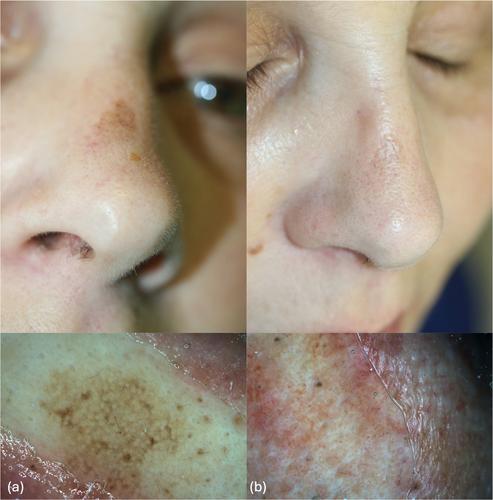Efficacy of Alexandrite Laser in the Treatment of Pigmented Actinic Keratoses: A Pivotal Study
Abstract
Objectives
Pigmented actinic keratoses (PAKs), a pigmented variant of actinic keratosis, present diagnostic challenges due to their resemblance to both benign and malignant lesions. Conventional therapies have inconsistent outcomes and may cause undesirable side effects. This study investigates the efficacy of the Alexandrite laser, a pulsed laser with selective melanin absorption, for PAK treatment. Through dermoscopic analysis pretreatment, it aims to identify predictive patterns for better treatment outcomes.
Materials and Methods
Patients with PAKs were enrolled in a multicenter study, receiving standardized Alexandrite laser therapy. Detailed dermoscopic evaluations were conducted pretreatment. The Physician's Global Assessment (PGA) and Target Lesion Pigmentation (TLP) scales measured treatment efficacy.
Results
The study included 50 patients with 60 PAKs. Following treatment, there was a statistically significant reduction in TLP scores, particularly in lesions with pigmented pseudo-networks and gray-brownish dots, which were linked to improved outcomes. No adverse effects were reported, suggesting the safety and tolerability of the laser treatment.
Conclusion
The Alexandrite laser emerges as a promising modality for the management of PAK pigmentation, with specific dermoscopic patterns being indicative of a favorable response. This study reinforces the critical importance of dermoscopic expertise in the selection and optimization of treatment for PAKs. Future research should focus on comparative studies with different lasers or combination therapies to develop a more comprehensive treatment framework for PAKs.


 求助内容:
求助内容: 应助结果提醒方式:
应助结果提醒方式:


